20% off
on all annual plans. Use 20blackfriday code at checkout.
Web scraping is the secret to scalable growth—don’t let the myths or challenges hold you back. In this handbook, you’ll learn how to use publicly available data to your advantage. From the tools to the anti-bot techniques, use cases, and more, we’ve covered the basics you need to know.
Not sure if this white paper is for you? Perhaps you resonate better with one of these groups:
Are you unhappy with the quality of your data or the turnaround time on current requests? Maybe you’re using the wrong tool for the task. Learn about the types of scrapers and methods that provide high success rates.
Does it feel like every time you scrape competitor data, you’re either getting blocked or you’re unable to move forward due to your lack of technical knowledge? Learn how to overcome anti-scraping techniques with an API.
Have your datasets become too complex to scrape at scale? It’s time for a new scraping process. Learn how to submit a large batch of requests simultaneously and have the data returned in a structured format in minutes.
Download this white paper to learn about:
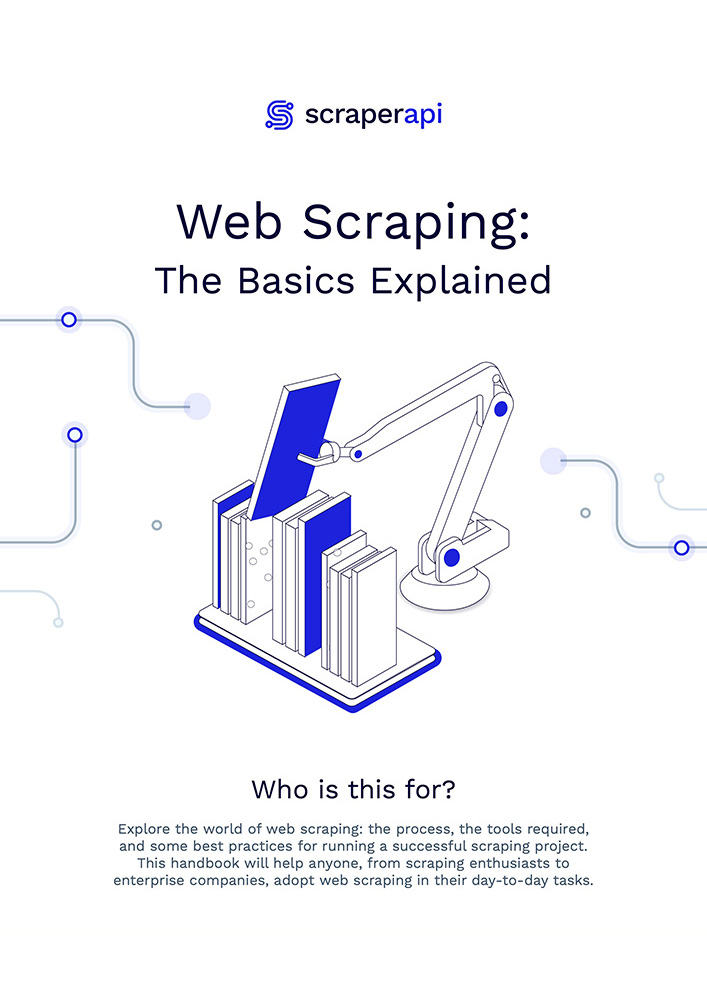
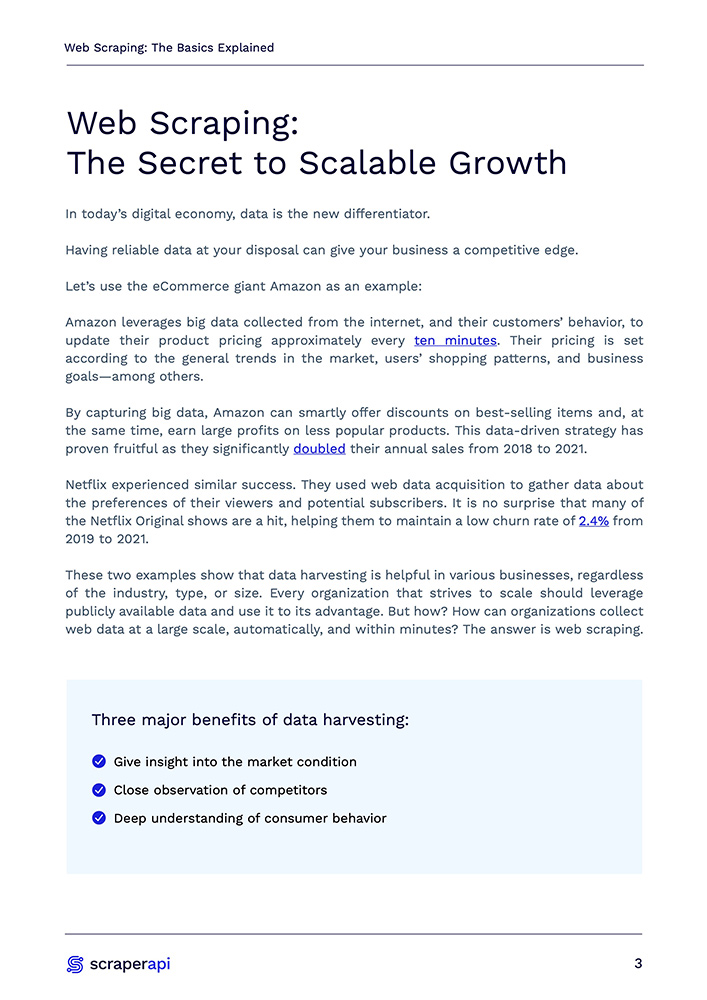
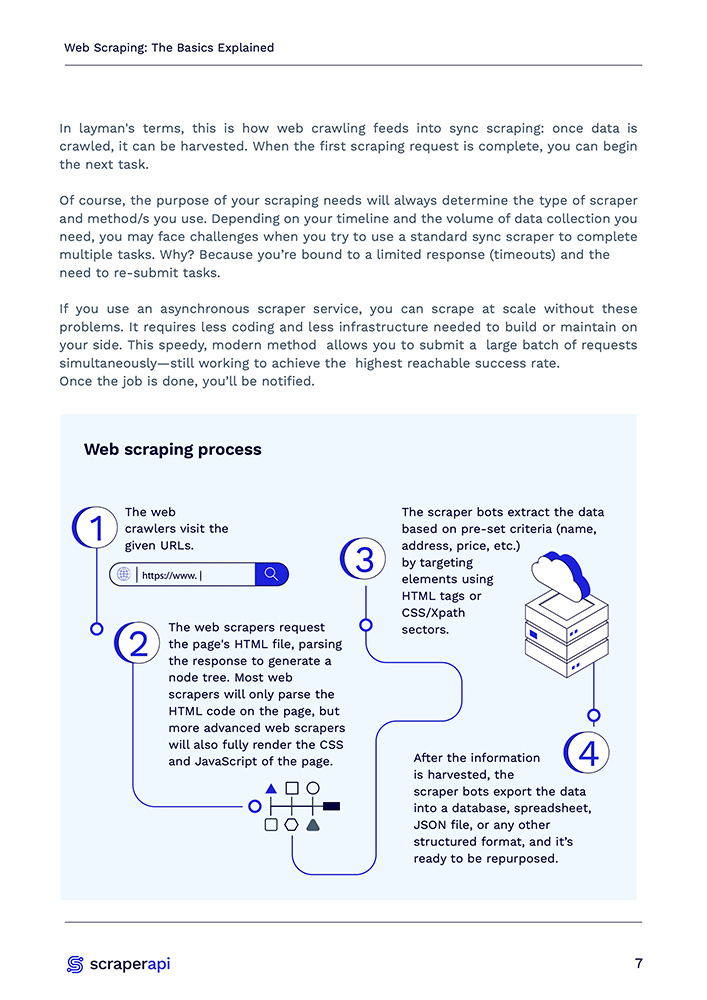
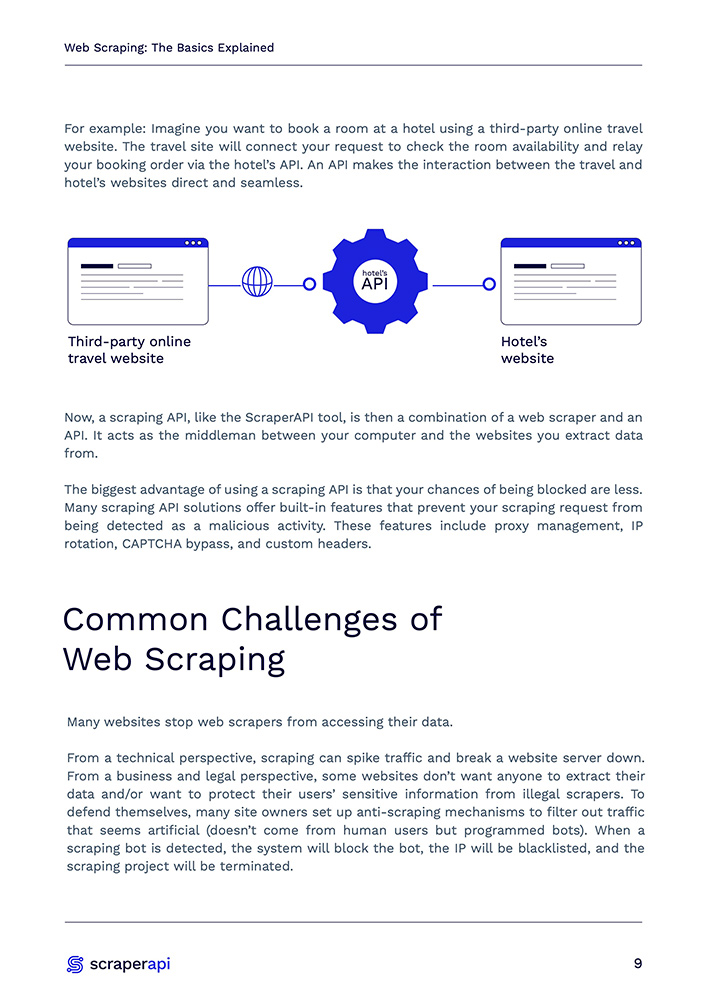
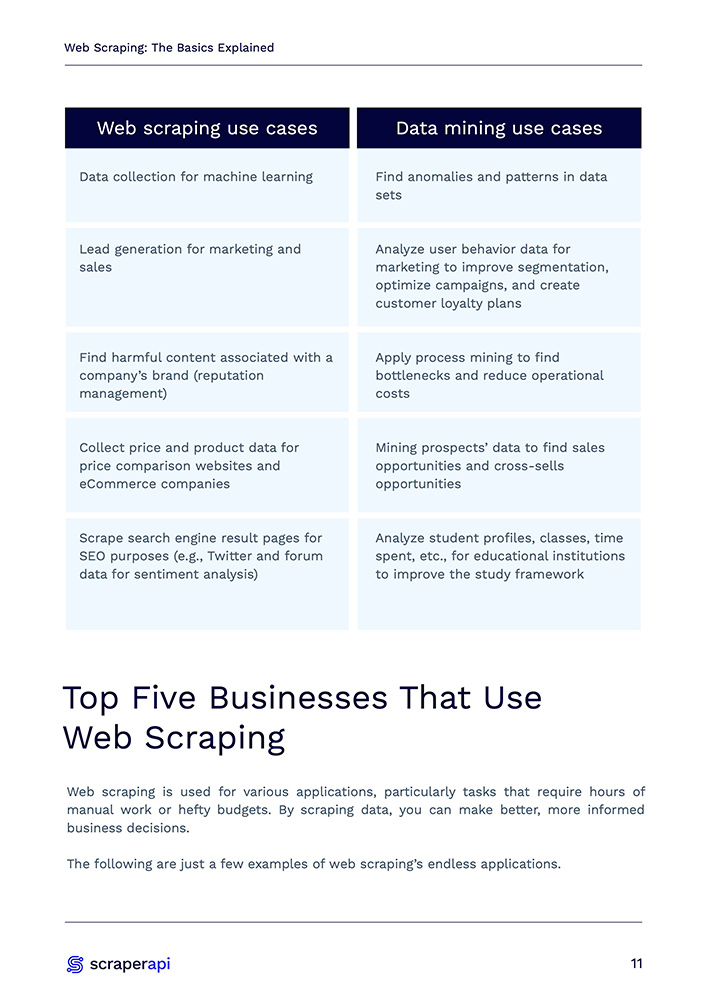
Still have unanswered questions about this handbook?
Web scraping is a data collection method. It enables you to extract any information (for example, product listings or stock market data) in bulk and have the results returned in a structured file format: XML or JSON.
No government has passed laws explicitly legalizing or de-legalizing web scraping thus far (2023). Therefore, we can only make strong assumptions based on case law about web scraping activity (e.g., HiQ vs. LinkedIn) and other data-related regulations. Web scraping itself is legal—but it can be illegal depending on the type of data you scrape and how you scrape it.
Learn more about the best practices for scraping in this article.
No, these are two separate processes. Data mining is the process of sorting through large amounts of data, whereas web scraping is the practice of extracting data and repurposing it into other applications and formats. It collects raw data, which is later used for data mining. The common use cases can be found in this white paper.
Start by choosing a reliable and robust web scraping tool that fits your needs and technical skill. ScraperAPI is an all-around web scraping solution that handles proxies, browsers, and CAPTCHAs—enabling you to acquire data from any website without getting blocked. We remove the complexities by simplifying scraping for everyone.
Please fill out this form to get your copy of Web Scraping: The Basics Explained.
Talk to an expert and learn how to build a scalable scraping solution.